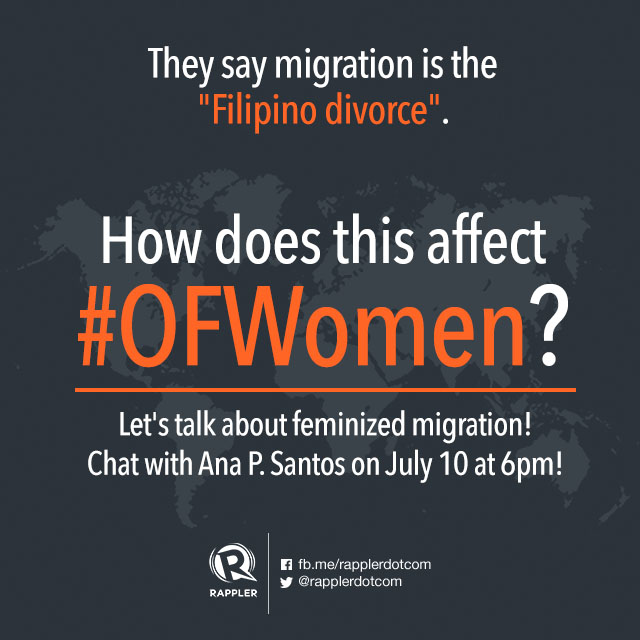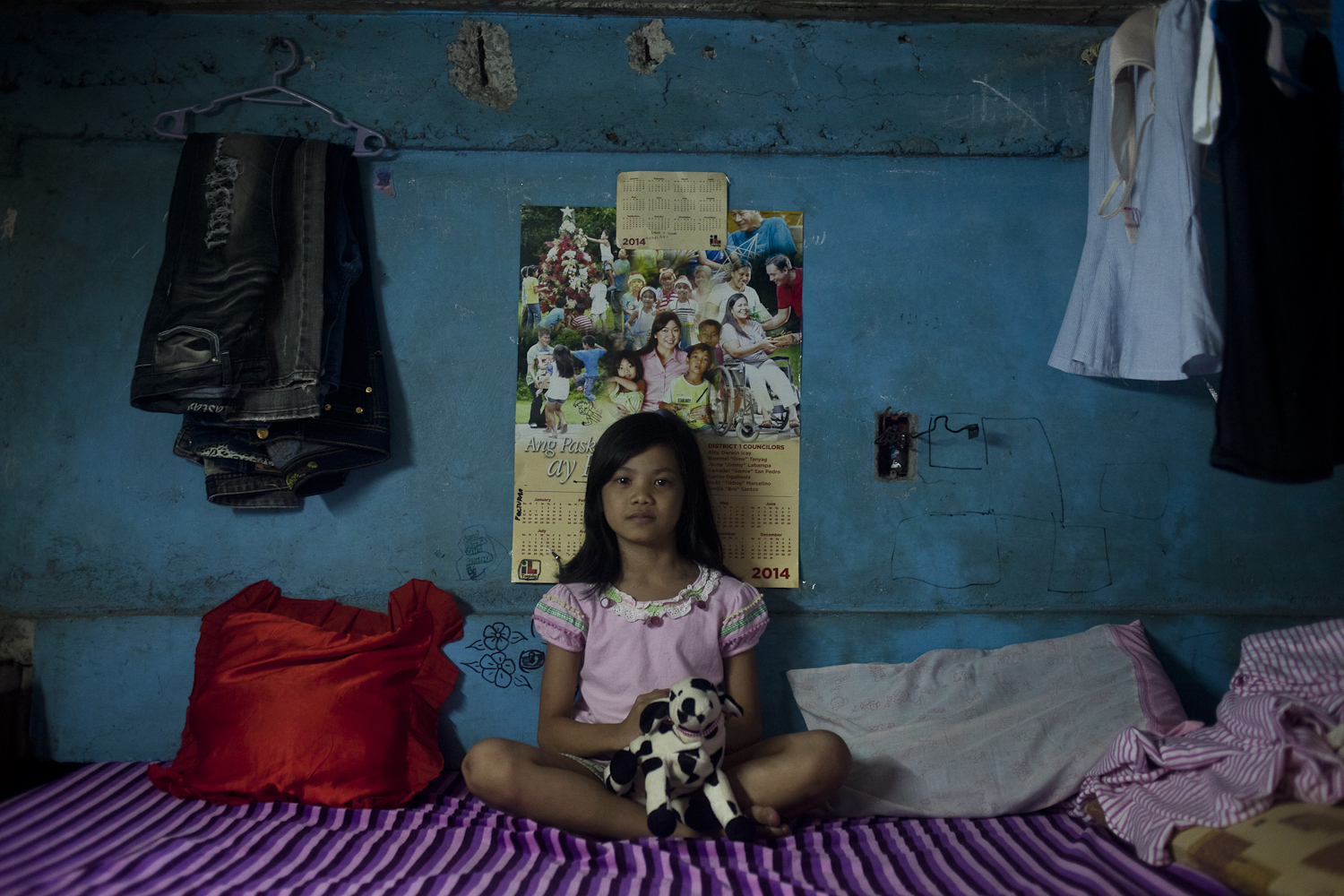
Today, most Filipino families have members who work overseas. The Filipino diaspora has spread to almost all parts of the world.
In 2002, there were around 891,908 overseas Filipino workers (OFWs) who left the country. A decade later, in 2012, this number more than doubled to 1,802,031, according to government data.
The country traces its long history of migration from the Galleon trade.
In the first few decades, Filipino migrants were mostly men involved in skilled labor. But as Filipinos spread across the world, more and more women joined the overseas workforce. In Europe and Canada, Filipino women now make up 85% of all migrant live-in caregivers.
Alongside this trend, OFWs shifted work from skilled to unskilled labor.
How do you think these trends affect the world's view about Filipino women? What do these mean for their families who are left behind in the Philippines?
Rappler columnist Ana Santos discussed feminized migration on Thursday, July 10 in Manila, Philippines. To read the conversation, visit the Scribble page.





